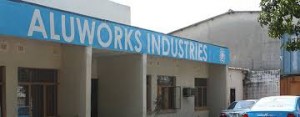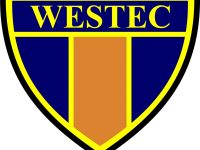 Aluworks Limited, the aluminium products manufacturer, says its market share has shrunk as cheap imported substitutes continue to undercut its business. Kwadwo Kwarteng, board chairman, told the B&FT in Accra on the sidelines of this year’s annual general meeting that the company’s market share has dropped from 25 percent in 2012 to 15 percent currently.
Aluworks Limited, the aluminium products manufacturer, says its market share has shrunk as cheap imported substitutes continue to undercut its business. Kwadwo Kwarteng, board chairman, told the B&FT in Accra on the sidelines of this year’s annual general meeting that the company’s market share has dropped from 25 percent in 2012 to 15 percent currently.
He blamed this on the inability of government to introduce countervailing measures that local manufacturers have proposed against cheap and poor-quality imports.
“The influx of cheap aluminium imports from the Far East into the Ghanaian market is seriously affecting our business; the situation is seriously eroding our market share and we want it to be stopped.
“We have asked government to increase the duty on cheap imports as a countervailing measure, but this has always been met with promises rather than action. We now have a new minister, and we hope he can do something about it,” Mr. Kwarteng said.
“We have also asked Customs to ensure that such imports meet the specified quality gauge — because what mostly happens is that importers of these cheap aluminium products bring in gauges between 0.3 and 0.4 instead of the standard gauge of 0.5.”
Mr. Kwarteng said the company now survives on a sustained niche market that has a preference for quality aluminium products made locally. Aluwork’s products include cast coils, discs and roofing sheets.
The issue of cheap and shoddy goods imported into the country is among the biggest worries of most manufacturers. Just as Aluworks, businesses in the textiles, printing and the agro-processing sectors –including Fast Moving Consumer Goods (FMCG) companies — have voiced similar concerns about how the situation is threatening their operations.
Despite a stiff business environment, Aluworks said it grew its sales volume by 6.5 percent over the previous year to 8,378 metric tonnes, resulting in a 16.8 percent increase in turnover to GH¢58.05million from GH¢49.68million in 2012.
The company, which is publicly held, cut its loss after tax from GH¢2.59million in 2012 to GH¢1.52million last year. It said it exported 3,057 metric tonnes of products in 2013, earning US$9.29million against the previous year’s figure of US$7.88million from 2,478 metric tonnes exported.
Touching on boosting production capacity and business prospects, Mr. Kwarteng said management is working to replace the old cold-rolling mill — the plant that produces the aluminium products — to restore the business to its 30,000 metric tonne capacity and eventually grow this to 50,000 metric tonnes.
The new cold-rolling mill is being financed with a US$14.3million loan from SSNIT and Barclays Bank, in addition to internally generated funds.
Mr. Kwarteng said Aluworks has bright prospects, as it aims to cut down costs and work hard to win back lost market share. No dividend was declared for shareholders.





